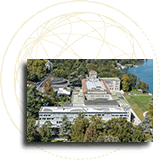
The fate of more than 90% of Indian farmers who are resource poor and dependent on the state for their livelihood, stands threatened by the new TPA agreement. Mr.Jaitely in a deja vue moment probably remembers his last negotiations on the behalf of India, in NY some years ago. The world forgets that a majority of India lives in its 500,000 villages. Here the farmers subsist on land holdings of less than 10 hectares of un-irrigated land and have done so for millenniums. This is unlike the conditions in developed Europe, US, Canada, Australia or the communist China or Russia and needs to be addressed urgently.
The new TPA with its limits like 10% on subsidy’s to the poor farmers would destroy their lifestyles as is clear from the numerous farmer suicides that take place each year and especially following dry monsoon years. There is an ecologically beneficial relationship between the villages and the surrounding land and it needs to be preserved. With the government holding stock piles of food grains for times of drought, through its procurement process, it is also a social imperative to continue these subsidies till the economy grows. There can be no timeline for meaningful employment for these partially self-employed people as we are decades from that point in our economic growth. The fight for resolution of this issue is vital to India and other developing country’s core social programs for food security, poverty reduction and rural development.
India’s stand has been stated before and is morally correct and needs resolution before the TPA kicks in.
So true. Given the plight of small farmers in India and the alarming number of suicides, such a low subsidy ceiling will exacerbate an already dire situation.
(Does TPA=Trade Policy Analysis?)